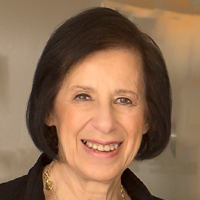
RIAs are taught that they must have an advanced understanding of mathematics to be experts at financial planning work. Clients, too, expect their advisor to exhibit expertise in solving math problems. Those expectations are correct yet represent only a fraction of the skills needed to advise clients on living financially secure and satisfying lives.
Here is a surprise: Good financial planning is about your clients and their lifestyle, not just their age, their amount of money or their future prospects.
I believe the best advisors have a range of important skills, including communication, appreciation of a client’s desires, knowledge of how to reach a chosen lifestyle — and a facility with math.
I was impressed to read that an accomplished mathematician, Luis Caffarelli, who won the 2023 Abel Prize in mathematics, applies his skills to real-world problems relevant to many of us. This includes financial markets movements and pricing of contracts, as well as more esoteric equations such as infinite speed.
When people who are financial advisors ask about “goals,” the answer should not be numbers. That may come later. If a client says, ” I want to have $XX by the time I retire,” the best response is, “What will be your style of living after retiring? Let’s look at that and see what it takes to get there.”
Consider your clients’ lifestyle
While reeling off numbers can make you seem knowledgeable, in reality, client lifestyle is as important as math, but not as scary or as inscrutable. I believe that we are scaring clients away with charts and graphs. Even if you think in numbers, avoid challenging your clients with too many. You are on their side and may only have to stretch to help them reach their goals.
Many people don’t understand equations or other mathematical processes but don’t like to say so. For them, the only number they want to hear about consistently is the amount by which their portfolio increased the previous month.
After learning relevant details about your client’s family, their current and future lifestyle, their goals and their wishes, only then may it be your job to figure out the appropriate numbers based on their desires.
Will they achieve a magic threshold? Do they instead need something else? Recently, one of my clients said it best: “I have $3 million but I dream of having $5 million. I know if I reach $5 million, I won’t be happy until I get to $10 million.” Then he brightly added, in a moment of self-knowledge, “Although I don’t know what I would do with that money that I can’t do now.” A single gentleman in his 60s, with no children, he is doing whatever he pleases. And his company pension adds to his comfort. So why base attaining his future happiness on a single number?
Another client who has been with me a long time told me her retirement plans revolve around taking several major trips each year of longer than a month, as long as she is healthy. It’s been my job to figure out her life expectancy, style of travel, median cost of trips and help her achieve that special goal or let her know if it wasn’t realistic. Last I heard, she was off to China for a month — in her case, an achievable goal in her fourth year of retirement.
Special bonds
Sometimes at work I tell my husband, who is CEO of our firm, that while he instructs people on how to invest to reach their goals, I help people know how to realize their desired lives. He is unmoved by my declarations but agrees that I do have a special bond with my clients. To emphasize one approach over the other is to do a disservice to your skills, your profession and your clients.
If your clients are not telling you about family relations, what motivates them at their job, their life dreams or where and how they might like to live, you (and they) are missing out. Try to gain their trust by revealing a little more about your own special interests and then delve further into their lives. This is not idle chatter. It is part of gaining the knowledge important to forming that special bond, serving your clients fully and retaining relationships.
For those who wonder if downplaying numbers is foremost a woman’s issue, a 2017 Pew study concluded that there were no material differences between women and men when it came to why they did not pursue a STEM (science, technology, engineering and mathematics) career. Women mentioned cost, time and struggles in classes more than men, while men said they simply developed another interest. Women were only slightly more likely than men to say they enjoyed science more than math classes when they were in school.
What is most relevant to clients?
Recently, at a client event, I hosted a speaker who is a relocation consultant. She helps people move to another house or state, possibly downsizing, in the second half of their lives if that is what they wish to do. She spoke to people’s heartfelt concerns. This was practical advice they could see themselves using. Clients, even those who were not planning to move, lined up to get her card. Her talk seemed to them to be more directly relevant to their lives, now or in the future, than charts about the economy, the markets or tax savings.
While there is no one answer on how to work with clients and what they value most, I would hesitate to lead with math.
Your first job is mainly to make your clients comfortable by asking open-ended questions about their lives. Of course, once you have your client’s trust, the many parts of investing or financial planning remain very important.
But I wonder if leading with these numbers right away will contribute to your success. Maybe it will for some who come to see you; others instead may expect math to supplement your financial recommendations.
Additional Reading: What is Your Firm’s Culture?
My advice is to speak your client’s language. Find out who you are talking to and what motivated them to seek you out. Later on, think about how your clients can reach their desired lifestyle — and support that with your calculations, your expertise and wellresearched numbers! Talk about their personal goals; but remember that when asked to do this, some clients will use financial planning terms they may not fully understand, in an attempt to win your approval.
They may proceed to put a price on everything to please you. You may hear, “I want $2 million before I retire” or “I want to leave $250,000 to each of my children.” But for many people, a percentage of assets can be a better choice as a bequest than a fixed amount because their assets may rise or fall over time. I often wonder how clients choose specific amounts and like to drill down to get to what they truly want to accomplish.
One magic figure is not what you’re going for. Help your clients imagine a comfortable way of life and you will get the answers you need to do the number-crunching for them. Your own goal should be to help your clients live their best future — and that is not a number.
Listen to your clients, talk to them about their concerns, and guide them with your insights. However, don’t overwhelm them with everything you know about financial planning at once. Speak to clients about their human concerns, relationships and deep-seated desires, and you may have a client for life.
Karen Caplan Altfest PhD, CFP, is a Principal Advisor at Altfest Personal Wealth Management. She helps many of the firm’s clients with a variety of investment and financial planning issues and specializes in helping women clients and widows. Karen’s Financially Savvy Woman programs, including the Women’s Financial $pa™, are popular with her clients. Her focus is to educate and empower women.







